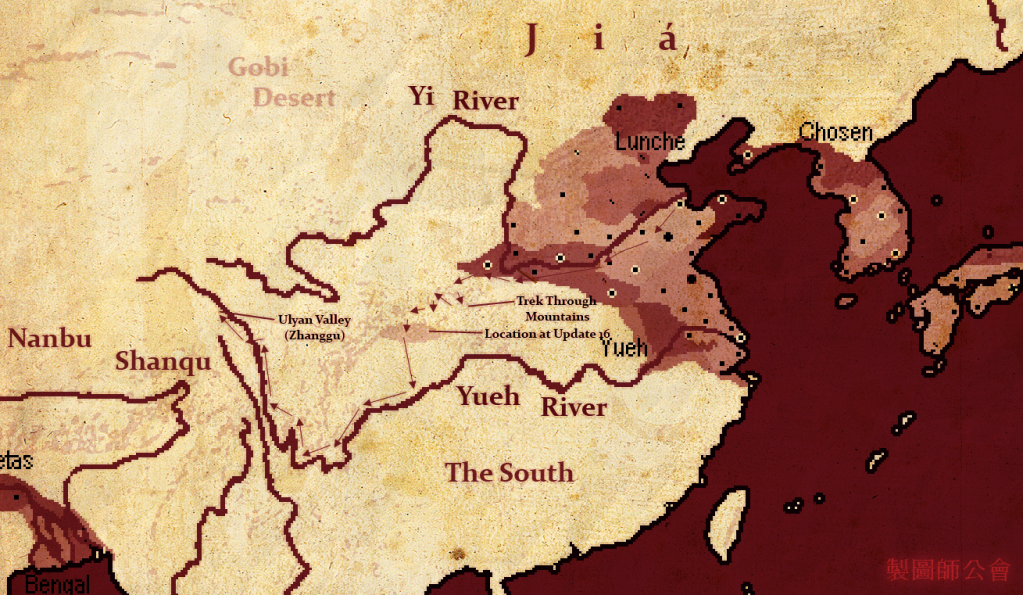Arrow Gamer
America's Dictator

It would just help for my timeline
I'll assume 3000B.C. and we are at 2200 B.C.

I should cause my collapse soon!
Yeah I first want to cause the collapse of some other empires and kingdoms... At least be the beginning of the end. There are some endless empires now in the levantine and that just won't doAnd that's why I love erez87. He knows when something has lived quite long enough and needs change (cough cough Southern King, owner of the last Original State with loads of corruption cough cough).
Of course, feel free to enjoy your mighty powers BEFORE you engineer your own doom!
@ Arrow Gamer
Just start a new one. Say, 0 years into the Bronze Age. Manden peoples passed under the radar at 100, and we are at year 800.
 I hope I can do some chaos in a single turn
I hope I can do some chaos in a single turn 
According to Erez, we're developmentally in the mid/early 1000s B.C. (1800s by Middle Kingdom Egypt, although its policy are more like the New Kingdom).
Also, the Xila have a calendar. But it is WAY too complex for me to follow as of now. Something to do with 36,000 day cycles or something.
OOC
to Hyak and Katan:
Will you join us for the burning of the far west?
People of Amir!
We have been strong. We have been strong for thousands of Summers, and we will be strong for thousands more. Our line, the Amir, has been unvroken since time immemorial. Like our line, this nation will never be broken. We stood strong against the Arin and the Mufhe. It is our right to rule the Afrast (the West) and the Ofek (East) and everything in between, and nothing will stop us from our path.
I will be implementing some reforms in the coming years, and they can only make the nation stronger. This year, I will be enhancing the army and sending it to the Ofek. We will subjugate the eastern horeds, for we cannot let them dominate us. We will be victorious, for the priests have foretold it.
Here is an overview of my nation, just to give you an idea:
Name: The Empire of Amir
Political System: Feudal Monarchy (Think HRE with no elections). There are many Sebs, which are the states within the empire, and each Seb is much like a Duchy. The most powerful are the Amir (largest by far, most powerful, live nearest the capital), the Arin in the east (second largest, about 2/3 as powerful as Amir), and the Mufhe in the west (1/3 as powerful as Amir, third largest).
Religion: Based on the gods Afrast (god of the west) and Ofek (god of the east). Afrast is the major good deity, Ofek is evil. Their father, Snaf, was immensely powerful, but died at the hands of his jealous wife. His wife than killed herself, leaving just Afrest and Ofek. There are many other minor gods, and each city has a god or goddess attached to it.
Some notable gods are Defne: Money, Waq: desert, Gafs: war, Reser: farming, Yef: wisdom and Jaky: the sea.
Culture: They have an inherent fear of the East, due to the Hordes, but they are also determined to conquer it. They love trade, and when they come in contact with another nation, they are bound to trade with it. They hate the north, due to the desert, but believe the west to be their friend because of the fact that it is where they are located. Their army is semi-professional, and have month-long training sessions every winter. They are not too restricting when it comes to technology, but the priests often try to resist any change. The Sebs have much power within their own realm, and all of them are often very different from each other. The rulers of each Seb, called Sebste, oftendictate how well educated, how religious, how rich, etc. in each Seb, so progress is pretty dependant on good Sebste, making Amir's progress erratic.
That's all I've got. Feel free to critique as much as you want, I can take it.
Note: My keyboard is messed up, so expect spelling errors.



OOC: Seeing as it's Egypt contacting its neighboring superpowers, I'd say anything west of them could be considered the Far West. Probably italy + spain.

 Consider that 'Flight of the Jin' map my entry.
Consider that 'Flight of the Jin' map my entry.